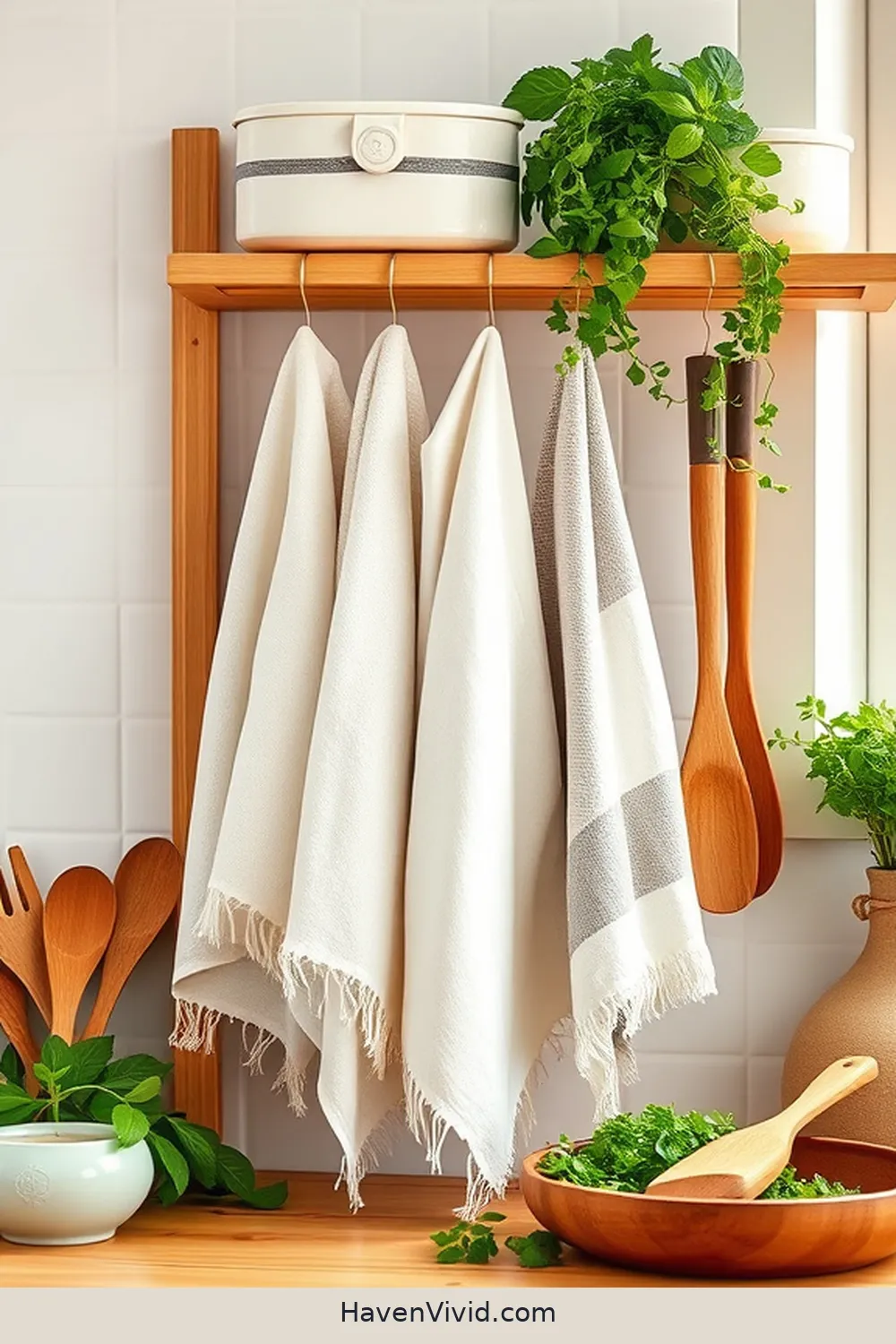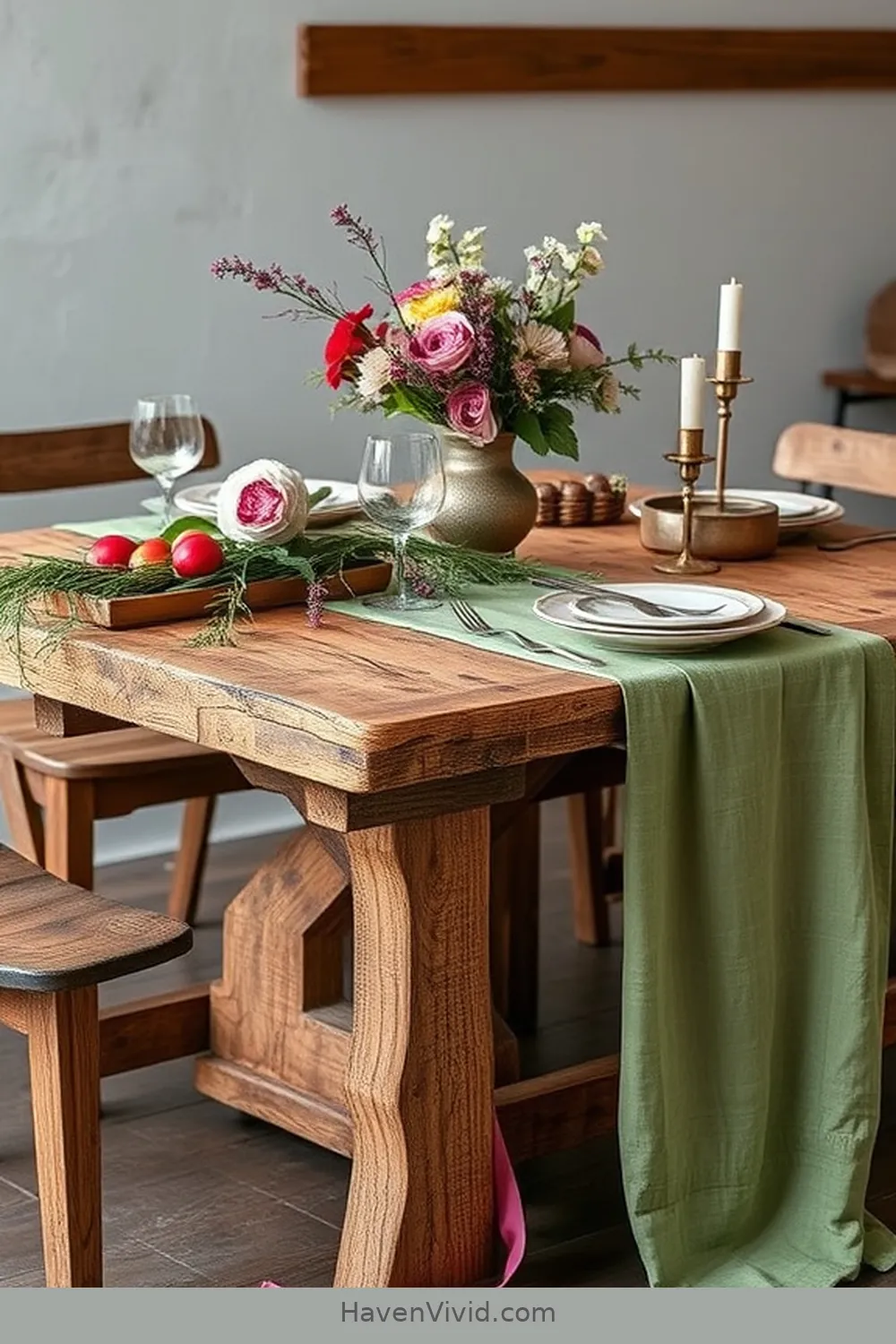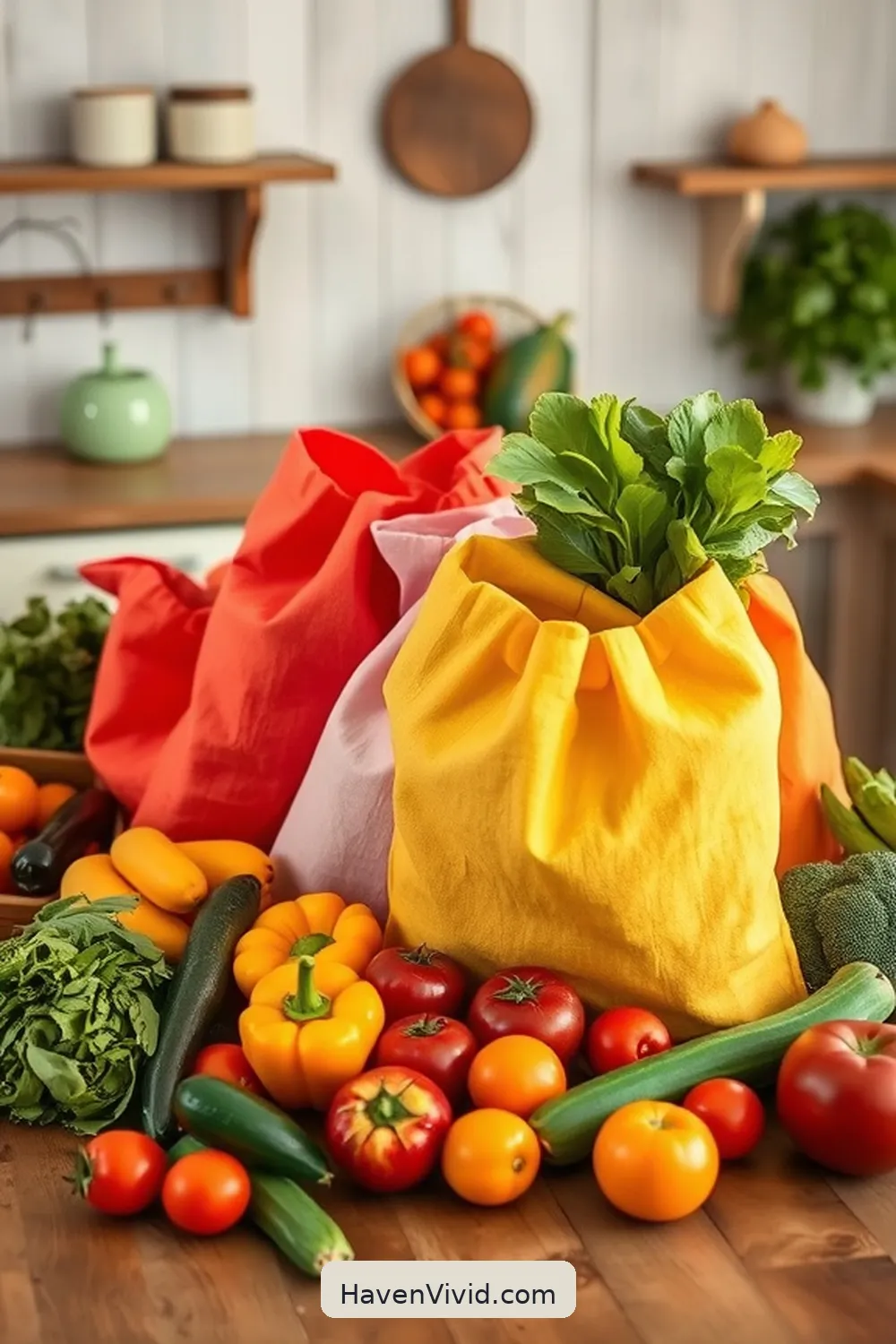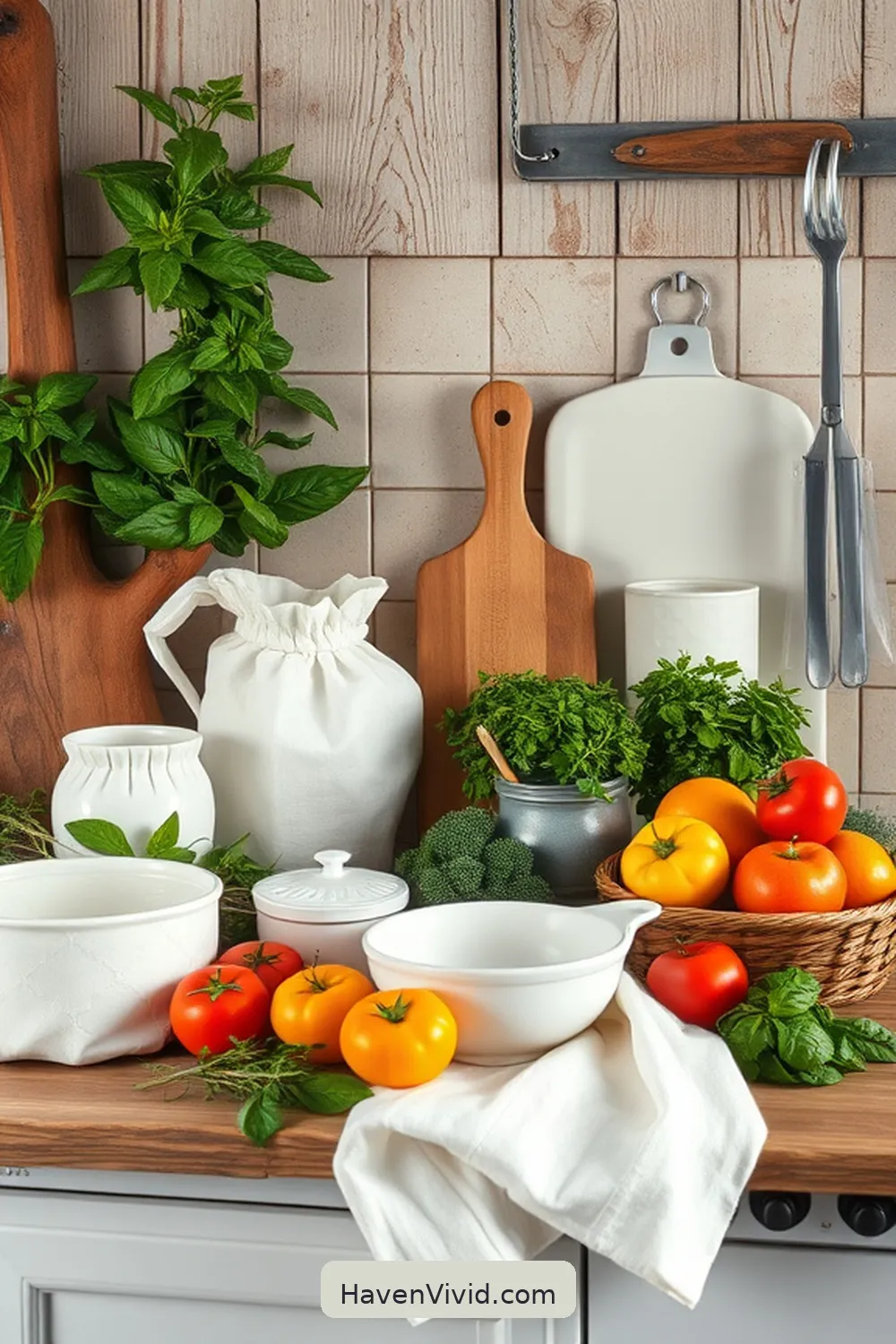This post may contain affiliate links. Please read our policy page.
I’ve embraced eco-friendly living in my kitchen by switching to organic cotton. It’s free from harmful pesticides, making it safe for my family and the planet. Reusable dish towels and table linens not only reduce waste but also add a touch of elegance to my meals. Plus, organic cotton keeps food fresh without toxic chemicals. Caring for these items is simple too. If you’re curious about how to incorporate more organic cotton into your kitchen, I’ve got some tips to share!
The Benefits of Organic Cotton in the Kitchen

When it comes to making eco-conscious choices in my kitchen, I’ve found that using organic cotton products has made a significant difference.
First off, organic cotton is grown without harmful pesticides, which not only protects the environment but also my family’s health. I love how soft and absorbent organic cotton dishcloths are; they tackle spills without leaving any fibers behind.
Organic cotton is pesticide-free, ensuring a healthier home and environment, plus its softness and absorbency tackle spills effortlessly.
Plus, they’re durable, so I’m not constantly replacing them, which saves money in the long run. Using organic cotton also supports sustainable farming practices, making me feel good about my purchases.
When I reach for those organic cotton towels, I know I’m making a responsible choice for both my kitchen and the planet.
Join me in this eco-friendly switch; you’ll feel better for it!
Recommended Items
Discover our handpicked selections to enhance your eco-friendly kitchen experience—let’s dive in!
Products
Reusable Dish Towels: A Sustainable Swap

Switching to reusable dish towels can transform your kitchen into a more sustainable space. I’ve personally made this simple change, and it feels great knowing I’m reducing waste. Unlike paper towels, which contribute to deforestation, organic cotton dish towels are eco-friendly and durable.
Here’s a quick comparison:
| Feature | Reusable Dish Towels | Paper Towels |
|---|---|---|
| Environmental Impact | Low | High |
| Durability | Long-lasting | Single-use |
| Cost Efficiency | Save money over time | Can get pricey |
| Versatility | Multi-purpose | Limited usage |
Eco-Friendly Table Linens for Every Occasion

While I love hosting gatherings, I’ve realized that the right table linens can elevate any occasion while also being eco-friendly. Choosing organic cotton tablecloths and napkins not only enhances the aesthetic of my table but also supports sustainable practices.
Imagine soft, natural fibers that are soft against the skin and free from harmful chemicals. They’re perfect for everything from casual brunches to formal dinners.
I’ve found that organic linens are just as durable as conventional ones, and they can withstand countless washes without losing their charm. Plus, I feel good knowing my choices contribute to a healthier planet.
Step-by-Step Guide to Eco-Friendly Kitchen Decor
Choosing Organic Cotton for Food Storage

Have you ever considered how much better organic cotton can be for your food storage needs? I’ve made the switch, and I couldn’t be happier.
Unlike conventional cotton, organic cotton is grown without harmful pesticides or synthetic fertilizers, which means it’s safer for both you and the planet. When I use organic cotton wraps or bags, I know I’m keeping my food fresh while avoiding toxic chemicals.
They breathe naturally, preventing moisture buildup and mold, which is a win for my produce. Plus, the soft texture means I can use them for anything, from wrapping sandwiches to storing herbs.
Choosing organic cotton for food storage isn’t just a trend; it’s a small change that leads to a healthier kitchen and environment.
Caring for Your Organic Cotton Kitchen Items

How can you guarantee your organic cotton kitchen items stay in top shape? It’s simple!
First, always wash them in cold water with a gentle, eco-friendly detergent to preserve their fibers. I usually skip the fabric softeners, as they can leave harmful residues.
Hang drying is my go-to to prevent shrinkage and maintain shape. Don’t forget to avoid bleach—it’s tough on these delicate fabrics.
For stubborn stains, a paste of baking soda and water works wonders without harsh chemicals.
Finally, I store my items in a cool, dry space to prevent any mildew or musty smells.











